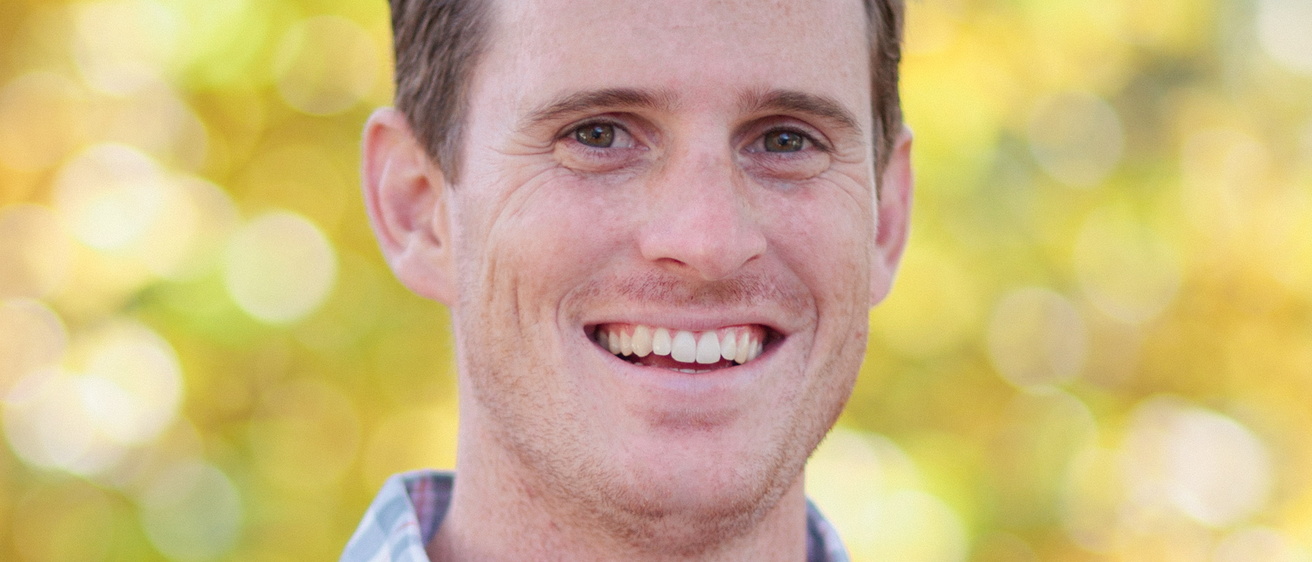“The Institute [on Engagement and the Academy] really pushed me to figure out what civically engaged scholarship looked like,” says Brian Collins. “It was—and sometimes still is—difficult for me to wrap my head around how my scholarship as a philosopher could directly apply to and benefit from this kind of work.”
That has not stopped Collins from imagining ways to share philosophy and its practical applications with populations outside the academy. A 2014 Obermann Graduate Institute Fellow, Collins is now on his way to a tenure-track position at California Lutheran University where he will have the opportunity to continue a course he developed for high school students here in Iowa.
Using Movies to Teach Philosophy to High School Students
“Introduction to Philosophy Through Film,” which he taught two different semesters with Professor Richard Fumerton (Philosophy, CLAS), was aimed specifically at interested students from Iowa City’s City High, West High, and Regina. Offered through the Division for Continuing Education, the course provided students with University of Iowa credit. Although some students attended in person, it was largely developed as an online course, with taped lectures that students could access via computer.
Students watched movies related to a number of philosophical issues. Through The Matrix, they explored Cartesian skepticism. The Sixth Day, a film about cloning, led to discussions about the philosophy of the mind.
“Brian led all discussion, and the course’s success is really a function of how well he engages students,” says Fumerton. “His enthusiasm for philosophy is contagious.”
From Inner City LA to Phd Program
After majoring in philosophy and psychology at St. Olaf College, Collins joined Teach for America. As a middle school math and science teacher in Los Angeles, he became convinced that philosophy could serve as a vehicle for teaching critical thinking about public life and discourse.
“I decided to pursue an advanced degree in philosophy for a much different reason than most people do,” says the Wisconsin native. “I was really interested in its practical applicability.”
Making Philosophy Applicable
While most see philosophy as a purely academic field, far removed from the daily concerns and issues of everyday life, Collins thinks it holds a unique power to help facilitate critical thinking and communication in matters such as education, public policy, and civic dialogue. His area of study is political philosophy and ethics. He pursues such questions as: What makes a government legitimate? And what, if anything, creates a sense of obligation that leads citizens to obey the laws of their state, even when they disagree with those laws?
When he returns to California in the fall, Collins hopes to partner with a nonprofit that works in prisons in order to establish a program for inmates interested in undertaking scholarly research about justice issues. He credits one of the fellows from his Graduate Institute class, Kat Litchfield (Language, Literacy, and Culture, College of Education), and her dedication to incarceration issues with inspiring this potential project.
Benefiting All Thinkers
No doubt it is a population that could benefit from what Fumerton believes philosophy can offer to any thinker. “In philosophy we learn to recognize the difference between good and bad arguments; we learn how to state a position clearly, to recognize important ambiguities in a position, to anticipate objections to a view, and formulate effective responses to those objections. Whatever one does in life, analytic and reasoning skills will stand one in good stead, and I think more and more fields are starting to realize that anyone who possesses them will be that much better at what they do.”
Collins said that one of the pleasures of engaged teaching is that it helps him “to critically reflect on my own understanding of the material.” He admits that he still struggles with how engagement fits into his scholarship as a philosopher. He is certain, however, that the lessons of the Obermann Graduate Institute on Engagement and the Academy—both the examples of his classmates and the recognition that true engagement must be a reciprocal relationship—will enrich his work in California.
